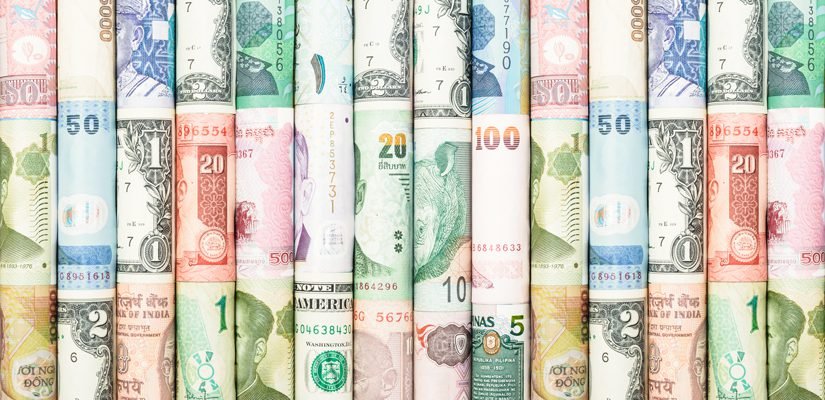According to a recent Reuters poll, an increasing number of investors are demonstrating bearish behavior towards most Asian currencies. This is predominantly due to China’s less-than-anticipated post-pandemic economic recovery, which has heavily influenced risk sentiment. Despite this, it’s worth noting that easing U.S. inflation rates could result in a reduction of these short bets, experts predict.
Date: July 13, 2023
Place: New Delhi, India
The poll surveyed a dozen analysts and recorded the most significant bearish bets on the Taiwan dollar, reaching its apex since November. While negative wagers on the yuan and the Malaysian ringgit showed slight abatement. Nonetheless, it should be highlighted that all these analyst inputs were received prior to the disclosure of U.S. inflation rates for June, which were surprisingly low, fueling speculation about a possible halt to rate hikes.
ANZ’s Head of Asia Research, Khoon Goh, expressed his anticipation for a probable unwinding of many short positions against Asian currencies. This follows the underwhelming U.S. inflation data and the associated U.S. dollar selloff. According to Goh, the yuan, the Taiwan dollar, and the Korean won might all see a decrease in short positions.
Worrying economic indicators from China, Southeast Asia’s primary trade partner, have ignited concerns about potential deflation risks among investors. This has prompted an uptick in bearishness against the region’s currencies. The Malaysian ringgit has emerged as the most heavily shorted compared to its regional counterparts.
RBC Capital Markets’ Head of Asia FX Strategy, Alvin Tan, indicated that the declining momentum in MYR has also drawn more bearish positioning. Maybank analysts, in a recent note, said they would keep an eye out for signs of further stimulus from the world’s second-largest economy, which could lend support to Asian currencies, particularly the ringgit.
Among Asian emerging markets, the Malaysian ringgit has seen the most depreciation this year, with a decrease of over 4%. Continued capital outflows from Malaysia’s export-oriented economy have further darkened the mood. The nation’s central bank referred to recent fluctuations in the currency as ‘excessive’ and pledged to intervene in the foreign exchange market to stabilize it.
The Reuters poll focused on what analysts and fund managers perceive to be the current market positions in nine Asian emerging market currencies. These include the Chinese yuan, the South Korean won, the Singapore dollar, the Indonesian rupiah, the Taiwan dollar, the Indian rupee, the Philippine peso, the Malaysian ringgit, and the Thai baht.
Poll data was based on net long or short position estimates on a scale from -3 to +3. A score of +3 would imply that the market is significantly long in U.S. dollars. The data included positions held through non-deliverable forwards (NDFs).
Below are the survey findings (positions in U.S. dollar versus each currency):
| Date | USD/CNY | USD/KRW | USD/SGD | USD/IDR | USD/TWD | USD/INR | USD/MYR | USD/PHP | USD/THB |
| 13-Jul-23 | 1.33 | 0.12 | 0.62 | 0.52 | 1.13 | 0.1 | 1.77 | 0.26 | 0.73 |
| 29-Jun-23 | 1.74 | 0.29 | 0.50 | 0.30 | 0.72 | -0.14 | 1.85 | 0.29 | 1.03 |
| 15-Jun-23 | 1.59 | -0.03 | 0.17 | -0.33 | 0.68 | -0.24 | 1.64 | 0.74 | 0.25 |
| 01-Jun-23 | 1.88 | 0.68 | 0.73 | 0.23 | 0.70 | 0.48 | 1.77 | 1.08 | 0.45 |
| 18-May-23 | 1.27 | 0.88 | 0.19 | -0.27 | 1 | 0.11 | 1.10 | 1.12 | -0.50 |
| 04-May-23 | 0.56 | 1.01 | -0.04 | -1.05 | 0.65 | -0.14 | 0.69 | 0.86 | -0.43 |
| 20-Apr-23 | -0.14 | 0.36 | -0.13 | -0.47 | 0.30 | 0.30 | 0.54 | 0.95 | -0.12 |
| 06-Apr-23 | 0.04 | 0.56 | -0.39 | -0.26 | -0.03 | 0.30 | 0.29 | 0.08 | -0.06 |
| 23-Mar-23 | 0.17 | 0.87 | 0.16 | 0.74 | 0.63 | 0.58 | 0.74 | 0.36 | 0.37 |
| 09-Mar-23 | 0.68 | 1.30 | 0.65 | 0.56 | 0.78 | 0.28 | 0.78 | – | – |
Amid China’s sluggish post-pandemic recovery, bearish bets on most Asian currencies are on the rise, as revealed by a Reuters poll. The Taiwan dollar has seen the highest increase in short positions. However, the recently reported low U.S. inflation could trigger a reduction in these short bets. Despite the overall trend, the Malaysian ringgit’s bearish bets have slightly eased but remain a focal point of concern.
Disclaimer
The following information is provided by CurrencyVeda for educational purposes only and should not be considered financial advice.





